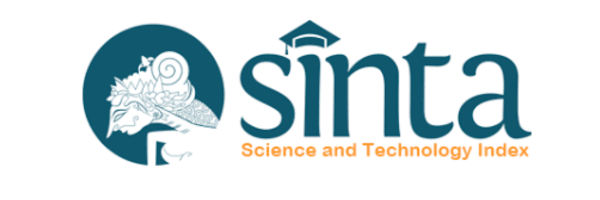Measurement of Return on Asset (ROA) based on Comprehensive Income and its Ability to Predict Investment Returns: an Empirical Evidence on Go Public Companies in Indonesia before and during the Covid-19 Pandemic
DOI:
https://doi.org/10.24269/ekuilibrium.v16i1.2021.pp94-106Abstract
Purpose - The concept of recognizing all inclusive income, which is used by IFRS and Indonesian SAK, is the basis for presenting other comprehensive income in the income statement. This change in format became the idea of developing a financial performance measurement.
Methodology - Testing the effect of attributable comprehensive income ROA and attributable ROA net income on future cash flows and net income, as a proxy for the ability to provide future returns, and applying them in measuring performance before and during the Covid-19 pandemic.
Findings - ROA net income is better able to predict future investment returns. ROA comprehensive income has more relevance value, when only other items of comprehensive income that have the potential to be realized are included. In assessing performance, users are advised to keep using the ROA of the net income version, and when using the ROA of the comprehensive income version, it is advisable to include only OCI which will be reclassified. The financial performance of companies in many industrial sectors experienced a decline during the Covid 19 pandemic using two ROA measures.
Novelty - Development of ROA formulation by including other comprehensive income and profit attribution, so far ROA is only based on net income.
References
Būmane, I. (2018). The Methodology of the Statement of Comprehensive Income and its Impact on Profitability: The Case of Latvia. Entrepreneurship and Sustainability Issues, 6(1), 77–86. https://doi.org/10.9770/jesi.2018.6.1(6)
Chen, H.-C., & Yeh, C.-W. (2021). Global Financial Crisis and COVID-19: Industrial Reactions. Finance Research Letters, September 2020, 101940. https://doi.org/10.1016/j.frl.2021.101940
Cohen, D. A. (2003). Quality of Financial Reporting Choice : Determinants and Economic Consequences Quality of Financial Reporting Choice : Determinants and Economic Consequences. London Business School Accounting Symposium.
Gang, J., Qian, Z., & Xu, T. (2019). Investment Horizons, Cash Flow News, and the Profitability of Momentum and Reversal Strategies in the Chinese stock market. Economic Modelling, 83(February), 364–371. https://doi.org/10.1016/j.econmod.2019.08.021
Indrawati, S. M. (2020). Dampak Covid-19, Pertumbuhan Ekonomi Kuartal 2 Diperkirakan Negatif. Kementerian Keuangan Republik Indonesia. https://www.kemenkeu.go.id/publikasi/berita
Kanagaretnam, K., Mathieu, R., & Shehata, M. (2009). Usefulness of Comprehensive Income Reporting in Canada. Journal of Accounting and Public Policy, 28(4), 349–365. https://doi.org/10.1016/j.jaccpubpol.2009.06.004
Kusuma, M. (2017). Konstribusi Informasi Akuntansi Biaya dalam Meningkatkan Nilai Perusahaan dan Tanggung Jawab kepada Stakeholder pada Perusahaan Manufaktur Semen di Indonesia. Ekuilibrium, 12(2), 102–118. http://journal.umpo.ac.id/index.php/ekuilibrium/article/view/673/555
Kusuma, M. (2020). Penghasilan Komprehensif lain dan Prediksi Arus Kas Masa Depan : Bukti dari Indonesia. Seminar Nasional SENIMA Ke 5 Universitas Negeri Surabaya, Senima 5, 815–832. http://bit.ly/ProsidingSenima5
Kusuma, M., Zuhroh, D., Assih, P., & Chandrarin, G. (2021). The Effect of Net Income and Other Comprehensive Income o n Future ’ s Comprehensive Income With Attribution of Comprehensive Income as Moderating Variable. International Journal of Financial Research, 12(3), 205–219. https://doi.org/10.5430/ijfr.v12n3p205
López-Quesada, E., Camacho-Miñano, M. del M., & O. Idowu, S. (2018). Corporate governance practices and comprehensive income. Corporate Governance (Bingley), 18(3), 462–477. https://doi.org/10.1108/CG-01-2017-0011
Marchini, P. L., & D’Este, C. (2015). Comprehensive Income and Financial Performance Ratios: Which Potential Effects on RoE and on Firm’s Performance Evaluation? Procedia Economics and Finance, 32(January 2009), 1724–1739. https://doi.org/10.1016/s2212-5671(15)01478-1
Nguyen, H. H., Ngo, V. M., Tram, A., & Trans, N. (2021). Financial Performances, Entrepreneurial Factors and Coping Strategy to Survive in the COVID-19 Pandemic: Case of Vietnam. Research in International Business and Finance, December 2020, 101380. https://doi.org/10.1016/j.ribaf.2021.101380
Rees, L. L., & Shane, P. B. (2012). Academic Research and Standard-Setting: the Case of Other Comprehensive Income. Accounting Horizons, 26(4), 789–915. https://doi.org/10.2308/acch-50237
Sajnóg, A. (2017). The Role of Comprehensive Income in Predicting Banks’ Future Earnings based on the Practice of Banks Listed on the Warsaw Stock Exchange. Equilibrium, 12(3). https://doi.org/10.24136/eq.v12i3.26
Saymeh, A. A., Khalaf ALkhazaleh, A. M., & Musallam, E. M. (2019). The Impact of Other Comprehensive Income Items on Financial Performance: Case of Jordanian Commercial Banks. The Journal of Social Sciences Research, 5(54), 1216–1228. https://doi.org/10.32861/jssr.54.1216.1228
Downloads
Published
How to Cite
Issue
Section
License
Retained Rights/Terms and Conditions of Publication
1. As an author you (or your employer or institution) may do the following:
- make copies (print or electronic) of the article for your own personal use, including for your own classroom teaching use;
- make copies and distribute such copies (including through e-mail) of the article to research colleagues, for the personal use by such colleagues (but not commercially or systematically, e.g. via an e-mail list or list server);
- present the article at a meeting or conference and to distribute copies of the article to the delegates attending such meeting;
- for your employer, if the article is a ‘work for hire’, made within the scope of your employment, your employer may use all or part of the information in the article for other intra-company use (e.g. training);
- retain patent and trademark rights and rights to any process, procedure, or article of manufacture described in the article;
- include the article in full or in part in a thesis or dissertation (provided that this is not to be published commercially);
- use the article or any part thereof in a printed compilation of your works, such as collected writings or lecture notes (subsequent to publication of the article in the journal); and prepare other derivative works, to extend the article into book-length form, or to otherwise re-use portions or excerpts in other works, with full acknowledgement of its original publication in the journal;
- may reproduce or authorize others to reproduce the article, material extracted from the article, or derivative works for the author's personal use or for company use, provided that the source and the copyright notice are indicated, the copies are not used in any way that implies RCEPM-LIPI endorsement of a product or service of any employer, and the copies themselves are not offered for sale.
All copies, print or electronic, or other use of the paper or article must include the appropriate bibliographic citation for the article's publication in the journal.
2. Requests from third parties
Although authors are permitted to re-use all or portions of the article in other works, this does not include granting third-party requests for reprinting, republishing, or other types of re-use. Requests for all uses not included above, including the authorization of third parties to reproduce or otherwise use all or part of the article.
3. Author Online Use
- Personal Servers. Authors and/or their employers shall have the right to post the accepted version of articles pre-print version of the article, or revised personal version of the final text of the article (to reflect changes made in the peer review and editing process) on their own personal servers or the servers of their institutions or employers without permission from Universitas Muhamamdiyah Ponorogo, provided that the posted version includes a prominently displayed Universitas Muhamamdiyah Ponorogo copyright notice and, when published, a full citation to the original publication, including a link to the article abstract in the journal homepage. Authors shall not post the final, published versions of their papers;
- Classroom or Internal Training Use. An author is expressly permitted to post any portion of the accepted version of his/her own articles on the author's personal web site or the servers of the author's institution or company in connection with the author's teaching, training, or work responsibilities, provided that the appropriate copyright, credit, and reuse notices appear prominently with the posted material. Examples of permitted uses are lecture materials, course packs, e-reserves, conference presentations, or in-house training courses;
- Electronic Preprints. Before submitting an article to an Ekuilibrium: Jurnal Ilmiah Bidang Ilmu Ekonomi, authors frequently post their manuscripts to their own web site, their employer's site, or to another server that invites constructive comment from colleagues. Upon submission of an article to Ekuilibrium: Jurnal Ilmiah Bidang Ilmu Ekonomi, an author is required to transfer copyright in the article to Economy Faculty Universitas Muhammadiyah Ponorogo, and the author must update any previously posted version of the article with a prominently displayed Economy Faculty Universitas Muhammadiyah Ponorogo copyright notice. Upon publication of an article by the Universitas Muhammadiyah Ponorogo, the author must replace any previously posted electronic versions of the article with either (1) the full citation to the work with a Digital Object Identifier (DOI) or link to the article abstract in Ekuilibrium: Jurnal Ilmiah Bidang Ilmu Ekonomi journal homepage, or (2) the accepted version only (not the final, published version), including the Economy Faculty Universitas Muhammadiyah Ponorogo copyright notice and full citation, with a link to the final, published article in journal homepage.
4. Articles in Press (AiP) service
Economy Faculty Universitas Muhammadiyah Ponorogo may choose to publish an abstract or portions of the paper before we publish it in the journal. Please contact our Production department immediately if you do not want us to make any such prior publication for any reason, including disclosure of a patentable invention.
5. Author/Employer Rights
If you are employed and prepared the article on a subject within the scope of your employment, the copyright in the article belongs to your employer as a work-for-hire. In that case, Economy Faculty Universitas Muhammadiyah Ponorogo assumes that when you sign this Form, you are authorized to do so by your employer and that your employer has consented to the transfer of copyright, to the representation and warranty of publication rights, and to all other terms and conditions of this Form. If such authorization and consent has not been given to you, an authorized representative of your employer should sign this Form as the Author.
6. RCEPM-LIPI Copyright Ownership
It is the formal policy of Economy Faculty Universitas Muhammadiyah Ponorogo to own the copyrights to all copyrightable material in its technical publications and to the individual contributions contained therein, in order to protect the interests of the Economy Faculty Universitas Muhammadiyah Ponorogo, its authors and their employers, and, at the same time, to facilitate the appropriate re-use of this material by others. Economy Faculty Universitas Muhammadiyah Ponorogo distributes its technical publications throughout the world and does so by various means such as hard copy, microfiche, microfilm, and electronic media. It also abstracts and may translate its publications, and articles contained therein, for inclusion in various compendiums, collective works, databases and similar publication.
7. Licensing Terms
Ekuilibrium is licensed under a Creative Commons Attribution-ShareAlike 4.0 International License.
Permissions beyond the scope of this license may be available at https://journal.umpo.ac.id/











